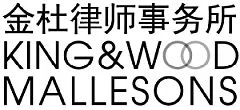- within International Law, Government, Public Sector and Tax topic(s)
- with Senior Company Executives, HR and Inhouse Counsel
- in United Kingdom
- with readers working within the Healthcare, Metals & Mining and Securities & Investment industries
In this article we explore the First Conduct Rule in Hong Kong's Competition Ordinance, focusing on its significance for companies preparing for implementation of the Ordinance.
Overview of the First Conduct Rule
The First Conduct Rule targets anti-competitive agreements, including serious or 'hardcore' coordination between competitors such as price-fixing, market allocation, output restriction or bid-rigging.
Hong Kong's Competition Commission has indicated that it will be particularly focused on this type of conduct. The Chairperson of the Commission, Ms Anna Wu, has singled out price-fixing cartels as initial targets, stating that she is determined to tackle the "Big Tigers" of Hong Kong.
Compliance Drive
Both Ms Wu and Senior Executive Director of the Commission, Rose Webb have been active in encouraging companies to put their affairs in order before the Ordinance comes into effect on "Day 1", with a focus on a conduct that could fall foul of the First Conduct Rule.
Ms Webb has given clear guidance for undertakings involved in a 'secret cartel': "get out of it, and get out of it now." The term 'secret cartel' evokes the conventional image of cartelists gathered in a smoke-filled room, sipping liquor, conspiring to fix prices, allocate markets, restrict outputs, or rig bids.
However, cartel conduct and other forms of anticompetitive coordination do not always bear the hallmarks of a 'secret cartel'. Less obviously egregious conduct has resulted in significant consequences for undertakings in established competition jurisdictions.
It is in these 'grey' areas that difficult compliance decisions will need to be made by companies before the Ordinance comes into force.
Guidelines: What Will They Address In Relation To The First Conduct Rule?
The Commission is required under the Ordinance to develop a set of specific guidelines on a number of aspects of the Ordinance, including how the Commission will give effect to the First (and Second) Conduct Rules. The Commission released Draft Guidelines on the First Conduct Rule on 9 October 2014.
Consistently with the Commission's consultation paper "Getting Prepared for the Full Implementation of the Competition Ordinance," the Draft Guidelines:
- draw on overseas practices to elaborate on the First Conduct Rule's key concepts of "agreement", "concerted practice" and "association of undertakings";
- set out guidelines on the steps the Commission will take to assess the 'object' or 'effect' of an agreement, concerted practice or decision of an association of undertakings;
- draw on overseas practices to explain the types of conduct defined as 'serious'.
Further, clarification on the Commission's interpretation of these aspects of the First Conduct Rule will be welcome, but it is in the grey areas of competitor collaboration and vertical agreements that guidance will likely be of most use.
The Commission has identified a number of 'common trade practices' for comment from market participants, including their views on whether those practices are efficiency enhancing or anticompetitive. These practices include:
- resale price maintenance;
- joint purchasing;
- sharing of price information;
- sharing of non-price information;
- collective boycotts;
- decisions by associations to restrict advertising by members, impose standards on members' products, or recommend fee scales.
How Much Clarity Can Be Expected?
Ms Wu's comments earlier this year indicate that companies waiting for the Guidelines to make difficult compliance decisions easier may be disappointed:
I hear people say that they expect our forthcoming guidelines to provide greater legal certainty for them to assess if this or that conduct contravenes the competition rules. In simple terms, some expect us to write an operating manual and provide the comfort that as long as businesses follow the manual they would be regarded as compliant. We will not be able to aim for that level of certainty or authoritativeness. Unfortunately for all of us, very few things in this world are either black or white, most things are grey and fall in between. What the guidelines would provide may be greater predictability and consistency of our enforcement approach and clarity of our procedures.
Joint purchasing and information sharing are, for instance, addressed in detail in European Commission guidelines. The similarities between Article 101 of the EU Treaty and the First Conduct Rule allow a direct read across. In the Hong Kong Commission's Draft Guidelines for the First Conduct Rule, the Commission has indicated that unless a joint buying arrangement serves as a disguised cartel, it will be analysed with regard to its actual and likely effects on competition in its legal and economic context. The Commission has indicated that it will have greater concern about information sharing which it may consider as a constituent part of a cartel.
Of course, the 'common trade practices' listed above are not exhaustive – there are many other areas in which practices which could breach the First Conduct Rule have been investigated and prosecuted in established competition jurisdictions, particularly in the context of supplier/customer relationships where there may also be a degree of competition between the supplier and customer, or where the supply contract contains provisions that reference competitors (such as most favoured nation clauses).
In these areas it is likely that, notwithstanding the publication of the Draft Guidelines for the First Conduct Rule, difficult questions will remain.
The content of this article is intended to provide a general guide to the subject matter. Specialist advice should be sought about your specific circumstances.


